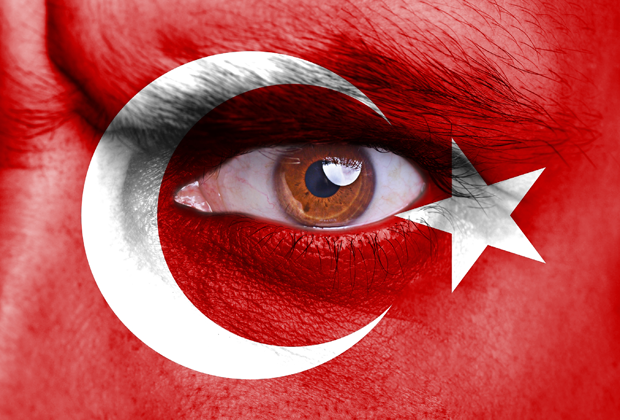Countries who seek to gain control over their people through the internet have their own agendas. They are in search of larger governmental control or even censorship online. — Marietje Schaake, European Parliament Member, Feb 2014

Politics, claimed the German chancellor Otto von Bismarck, is the art of the possible. Exceed that limit, and you are bound to make a hash of it. By all means, care to dream, but be aware of limitations. The Turkish government, led by Recep Tayyip Erdoğan, has given that sentiment substance. Ahead of the local elections on March 30, he has attempted to shut off Twitter via a court order. Google has similarly been subject to requests by the Erdoğan government to remove material alleging government corruption from its YouTube sites.
It all began late on Thursday. At a rally, Erdoğan apparently told reporters that, “We will wipe out all of these.” Another reported comment from the speech was even less edifying: “Twitter, mwitter!” Erdoğan then hit his strides, claiming that he would target his political enemies, and that he did not care one iota for international opinion. “The international community can say this, can say that. I don’t care at all. Everyone will see how powerful the Republic of Turkey is.”
Those using the site were taken to a government statement issued by the telecommunications regulator TIB. Four court orders were cited behind the ban. In theory at least, 12 million account users in Turkey were to be shut off from the site. “If Twitter officials insist on not implementing court orders and the rules of law… there will be no other option but to prevent access to Twitter to help satisfy our citizens’ grievances.” Importantly, Erdoğan is suggesting that Turkish citizens have been mocked and insulted, and that he is stepping in to protect citizens against the misuse of Twitter.
As ever, classic authoritarianism is based on merging civic responsibility with a leader’s aspirations. Insult the body politic and you are insulting the people of the nation state. The reaction shows how rattled Erdoğan has been by a series of postings and recordings seemingly showing corruption within the prime minister’s circle. Wiretap records of telephone conversations between the prime minister, media and business figures, members of Cabinet and family members do not paint a good picture.
Hurriyet Daily is also speculating that the move against Twitter by Erdoğan may be motivated by concerns that those who have been behind the leaks may have a recording between the Turkish Intelligence Organisation (MIT) Chief Hakan Fidan and the imprisoned Kurdish leader Abdullah Öcalan. That in itself is not a problem – apart from the suggestion that the conversation may contain guarantees for Öcalan’s release. That might well put a dampener on government aspirations.
The barrel of the ruling regime is certainly filled with more than the odd rotten apple. Last year’s annus horribilis for the government saw at least 52 people, including the sons of three Cabinet members, businessmen, officials and a mayor detained in three separate investigations. Accusations were levelled on the receipt of construction permits for protected areas in exchange for cash, and bribery over state projects. The graft probe resulted in the resignations of four ministers. As more corruption is being exposed, officials are getting desperate.
Attempts to rein in expression of the political sort shows up in the country’s jails, which are being filled with non-compliant journalists. In 2013, the Committee to Protect Journalists revealed that Turkey was the world’s top jailor of journalists, something it has been for some time. Given the stiff competition, this was a remarkable statistic, inflated by the retaliation on the government’s part against coverage of the Gezi Park protests. Additionally, 22 journalists were fired and 37 forced to quit. The desire to control the streams of opinion and expression is proving powerful.
Twitter users in Turkey reacted with immediate effect to the ban, some helped by instructions from the San Francisco based firm to use the medium in other ways. The company does enable users to employ trimmed down version of it. A particularly potent picture appeared, showing Twitter-style birds making droppings on the Prime Minister. The medium had muddled with the message.
Ankara has been keen on controlling various multimedia platforms for some time. The Gezi Park protests last summer were accused of being a social media confection, though the government erred in classic fashion by assuming that the platforms being used were the protests. A request was made to Twitter to establish a Turkish based office for one simple reason: ease of control. Material objectionable to the government would be more easily removed.
Such efforts are simply not working. In an embarrassing turn of events for Erdoğan, he has found the Twitter ban broken by his own Deputy Prime Minister Bülent Arinç and Ankara Mayor Melih Gökçek. Even President Abdullah Gül, who claims to have been an unwilling approver of the Internet law, said via his own Twitter account how opposed he was to the ban. To rub salt into an already suppurating wound, the use of Twitter in Turkey has actually soared, rising by 33 per cent.
Controlling the internet continues to remain the ignoble dreams of those in authority. The Turkish prime minister has proven to be no exception, using his AK Party’s majority in Parliament to pass legislation regulating its use. But the lesson for Erdoğan should be simple: ban Twitter, and you are set for the dump. Even his own officials are starting to believe it.
This article was published on 24 March 2014 at indexoncensorship.org
Adapted from indexoncensorship.org




